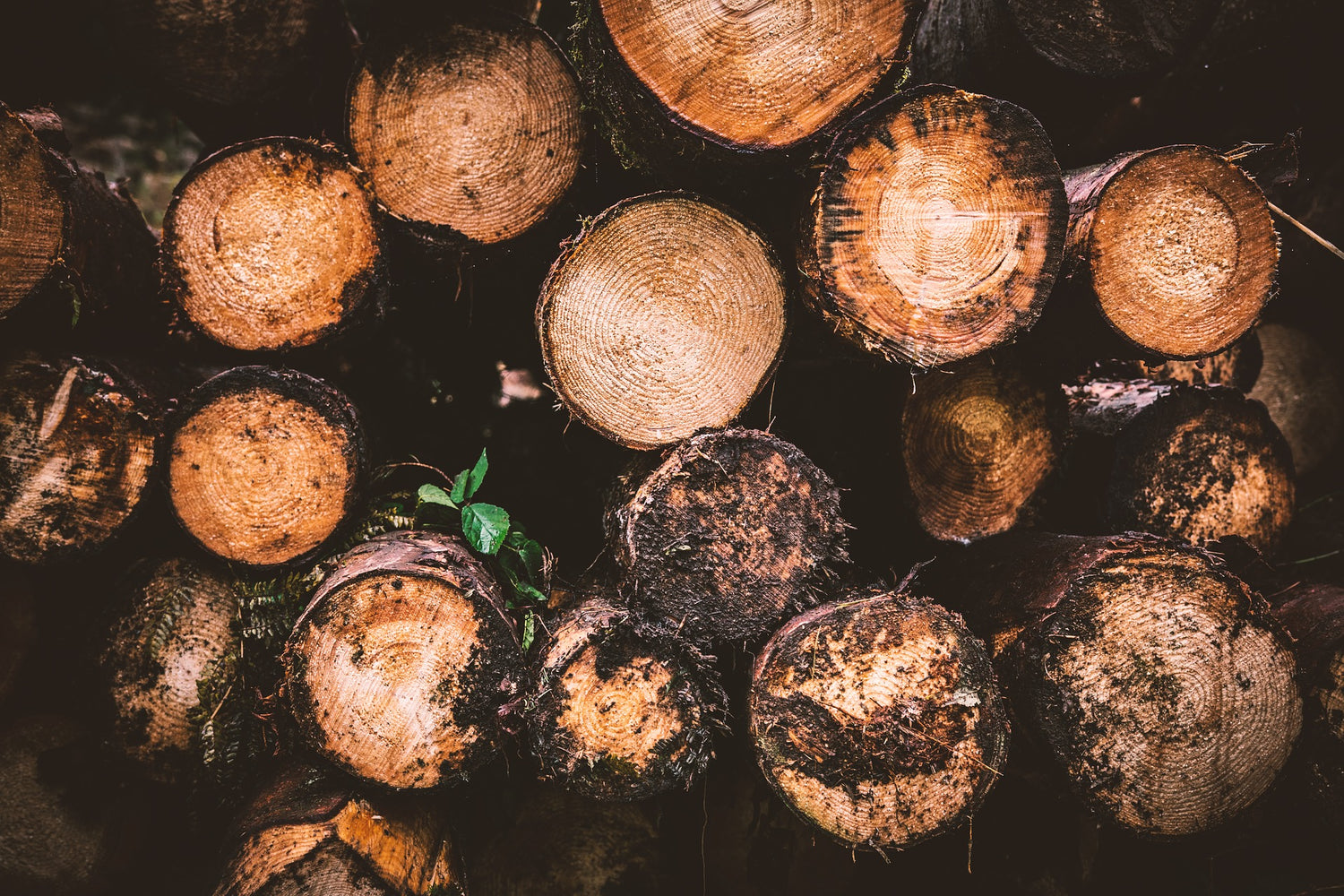Wood is a noble material that has been favored many times in history in the construction of furniture, houses, caravels, etc. At one time, wood was part of everyday life and was the basic material of everything around us. Today, with industrialization, other transformed materials have supplanted this noble element, a direct product of nature. It remains to be seen whether this transition represents an improvement in the situation and whether wood is now truly obsolete.
The role of our forests

Free-Photos on Pixabay
The world's forests are said to be the lungs of our planet. Technically, this is both true and false. Young trees, during their growth, effectively capture CO 2 and then release oxygen. However, when the trees are mature, they no longer produce oxygen to such an extent that they would make the whole planet breathe. Rather, they store carbon dioxide, thus constituting what are called carbon sinks (Noury, 2019). Mature trees are therefore not the lungs of the world (Agence France-Presse, 2018, para. 5), but rather an air purifier on a planetary scale, if you allow the comparison. Whether we prefer one figure or the other, the image remains the same. Global forest cover reduces air pollution and limits further climate change through increased greenhouse gas emissions (Canadian Forest Service of Natural Resources Canada, 2017). Conserving these resources therefore appears crucial and neglecting their management would be to our demise.
Exploitation and deforestation

Free-Photos on Pixabay
Does logging necessarily rhyme with deforestation? Is it really impossible not to destroy our forests when we decide to harvest the resources? The answer is no. Responsible cutting exists, is feasible and applicable and must be implemented. The principle is simple. All you have to do is drop clearcutting and opt for logging techniques that are more respectful of forest environments. Trees should be chosen carefully. Opting for mature trees facilitates access to resources for the youngest thanks to the reduction of the high forest cover. The key to sustainable forest management is planting after cutting. Replanting is essential to ensure flora renewal, but also to ensure the sustainability of this habitat for wildlife. If silviculture is implemented and planting is done with care, i.e. taking care to choose species in accordance with the environment for which they are intended, logging can be an ethical activity. , eco-friendly and sustainable.
A spoiled harvest

Johannes Plenio on Pixbay
Local logging is not the problem. Canada has strict standards for logging, which are fairly enforced (Natural Resources Canada, 2017). When our wood ends up on the shelves of various home improvement centers and hardware stores, there is no problem. The so-called exotic wood is harmful and dangerous for the global forest cover. Yes, an ebony or mahogany top is superb, but these species do not grow in our territory. Not only does wood have a huge environmental footprint due to the transport necessary to end up on our shelves, but very often these species come from developing countries that are not very careful about exploitation or do not have the necessary resources. to control it. Logging and the illegal timber trade then flourish and lead to increased deforestation, since no rules are respected and no tree is planted after the cutting of another.
The phenomenon is particularly illustrated when we consider our consumption choices. In Canada, buying these species means supporting the "timber mafia" for a third of the purchases. Exotic wood is therefore to be dropped since we rarely know where it comes from and we do not know under what conditions it was harvested. As well prefer our local essences that we know harvested in all environmental ethics. Your Quebec oak kitchen table will throw even more (Dufresne, 2017)!
Substituents of the most ambiguous
As mentioned earlier, wood is no longer at the forefront of our production of consumer goods. In our postmodern era, we have preferred plastic because it is more malleable, more easily transformable and more versatile. It is also less durable, more damaging to the environment, less recyclable. So, is the choice of plastic over wood really justified? Plastic pollutes our oceans, our lands, our airs and this, without stopping. Wood is then definitely to be preferred to plastic. However, the world's forest resources are not large enough to sustain the current growing production. The problem is not in the availability of wood here, but rather in our mode of consumption. It is therefore a necessity to make a 180 degree turn in relation to our way of consuming in order to be able to return to production based on more noble materials. We cannot make this choice if we continue to produce faster than the Earth is producing itself.
Finally, wood is a noble material that we must bring back into our lives, but within the framework of a reasoned and ethical exploitation of the forests from which it comes. Above all, we must reintegrate nature into our lifestyles. Urbanization makes everyone forget, one day or another, that the territory we inhabit was previously wild, and that it belonged and still belongs to the Earth before being possessed by man.
Before producing lots of artificial substitutes that are harmful to the environment, let's first ask ourselves whether the exploitation of natural products is less harmful to the environment. This is not a grand view of life where everyone should live in symbiosis with nature and consume only natural products. No, this idea revolves more around the question of replacing the raw materials of natural origin in our lives. We no longer use wood, because its availability is not great enough for our mind-boggling consumption. Its expensive production is not fast enough for this one and offers a durability that does not respect the principles of planned obsolescence of our throw-away society.
We produce faster than the Earth, faster than the normal renewal of its resources. It is worrying to note that today alternatives to plastics are not considered even if they have always been part of our lives. Slowing down all industrial activity and returning to a more traditional way of doing things still seems inconceivable to too many people.

Reviewed by Sandrine








































Leave a comment
This site is protected by hCaptcha and the hCaptcha Privacy Policy and Terms of Service apply.